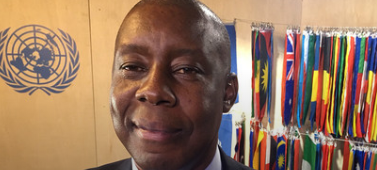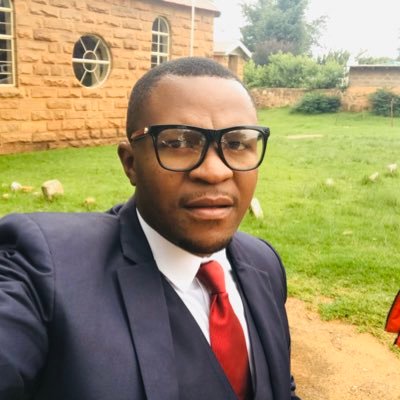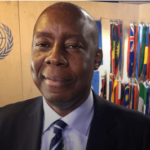Lehlohonolo Motšoari
The endorsement of Joshua Setipa by the Southern African Development Community (SADC) Council of Ministers for the position of Secretary-General of the Commonwealth marks a significant milestone for Lesotho and the entire SADC region.
The monumental nod for the first Mosotho to be nominated for the position, was made during the Council’s momentous gathering earlier this year, in the vibrant city of Luanda, Angola.
The resounding endorsement from SADC resolutely underscores the unwavering solidarity and collective vision shared among member states in elevating one of their own to a position of global prominence and influence.
With a distinguished background in international trade, economic policy, and investment strategy, Setipa brings a wealth of experience to the table. His tenure as Managing Director for the Technology Bank for Least Developed Countries further underscores his commitment to addressing the unique challenges facing the most vulnerable nations.
As preparations for the Commonwealth Heads of Government Meeting in October 2024 continue, the endorsement of Setipa by SADC reaffirms the region’s commitment to promoting democracy, good governance, and multilateral cooperation.
The Lesotho government, which is actively pushing for Setipa’s appointment, has urged fellow Commonwealth member states to consider Setipa’s candidacy, based on his unwavering dedication to the core values of dialogue, inclusivity, and sustainable development. His leadership qualities and vision align closely with the principles that define the Commonwealth’s ethos.
His candidacy symbolizes hope and optimism for Lesotho on the international stage, and his election would undoubtedly be a momentous occasion for the entire Commonwealth community.
In his candidacy declaration, Lesotho’s former Minister of Trade and Industry has vowed to transform the collective’s trade and investment potential to fight poverty among members.
“I firmly believe that unlocking the full trade potential of the Commonwealth is a strategic priority that requires renewed attention. The Commonwealth’s collective trade and investment potential holds the key to lifting millions of its citizens out of poverty. Drawing on my extensive experience implementing trade policy programs and strategies across the Commonwealth, I am confident in my ability to articulate and promote a new and sustainable trade agenda. This agenda will prioritise the effective integration of developing Commonwealth countries into the global trading system, ensuring that they reap the full benefits of increased intra commonwealth trade and investment,” he said.
Within his wealth of knowledge, he plans to harness his professional journey in the Lesotho public service, which has afforded him first-hand experience of the transformative impact that Commonwealth support can have across various sectors.
“I have witnessed the Commonwealth successfully strengthen public policy formulation, mediate national political crises, build institutional capacity, and lay the ground for sustainable development. The challenges confronting developing countries today, particularly small island developing states (SIDS), threaten to undermine the progress made towards achieving the 2030 Agenda for Sustainable Development. Persistent instability in several regions and the erosion of democratic institutions pose significant obstacles that demand renewed political focus and investment. With its convening power and global influence, the Commonwealth is uniquely positioned to address these challenges effectively.
“As Secretary-General, I will focus on strengthening the Commonwealth Secretariat, ensuring that it remains a dynamic and responsive organisation, capable of delivering tangible benefits to its member states. To this end, I will undertake a comprehensive review of the Secretariat’s administrative manuals, streamline communication with all stakeholders, rationalise program development and delivery, develop effective impact assessment tools, enhance financial management, and develop a comprehensive resource mobilisation strategy.”
He also plans to prioritise the strengthening of the Commonwealth Secretariat’s communication and engagement with all stakeholders, including member states, civil society and international organisations, and the private sector.
“By fostering inclusive dialogue and collaboration, we can harness the collective wisdom and expertise of the Commonwealth’s diverse membership. I strongly believe in the power of partnerships to amplify the Commonwealth’s impact. I will actively seek out and strengthen partnerships with organisations across the globe that share our values and principles. Collaboration with entities within the United Nations system, development partners, regional economic communities, and the private sector will be crucial in mobilising resources, delivering programs effectively, and addressing the complex challenges facing our member states. In this regard, the Commonwealth’s ongoing work on access to climate finance and on oceans and natural resources is of paramount importance and should be scaled up.
“As Secretary-General, I will mobilise and advocate for increased resources to support these initiatives, particularly those aimed at assisting developing countries in accessing climate finance. I will also champion innovative solutions that harness the ingenuity of Commonwealth citizens and empower governments to develop homegrown solutions to climate change. By transitioning to green economies rooted in renewable energy sources, we can collectively mitigate the effects of climate change and build a sustainable future for all. Furthermore, I will prioritise capacity building in key policy areas such as strengthening democratic institutions, protection of human rights, the judiciary, and the public service. These areas are of critical importance to Commonwealth members, and the Commonwealth is widely recognised as a leader in these fields.
“Formulating innovative tools to support small developing Commonwealth countries will be a key focus of my term in office. I will engage in extensive consultations with partners to explore new strategies for mitigating the vulnerabilities of these members. The majority of Commonwealth developing states are highly susceptible to the impacts of climate change. As Secretary-General, I will continue to prioritise the secretariat’s work on Health, Education, and Youth development. I will strengthen the Secretariat’s commitment to a holistic social development approach that recognises that health, education, and Youth and Women development are interconnected pillars that are critical for the empowerment and prosperity of Commonwealth citizens.”
Setipa assumed the role of Managing Director for the Technology Bank for Least Developed Countries in November 2018. With over 20 years’ experience in senior roles in international trade, economic policy, investment strategy and economic development at the national, regional and multilateral levels, Setipa has a wealth of experience and knowledge on issues affecting least developed countries
Setipa came to the Technology Bank from the World Bank where he has been leading strategic engagements in West Africa.
Setipa has extensive experience formulating and implementing national and regional development projects in Sub Sahara Africa. From 2015 to 2017, Setipa was the Minister of Trade and Industry for the Government of Lesotho, spearheading the adoption of national industrial policy. Prior to this Setipa worked as Chief Executive Officer for the Lesotho National Development Corporation.
Setipa was a Senior Advisor to the Director-General of the World Trade Organization for over six years where he was a member of the Executive Management Team.
Setipa holds a Master of Business Administration and International Finance from the University of Bradford, UK, a Graduate Diploma in International Relations and Trade from the Australian National University, Canberra and a Bachelor of Arts in Public Administration and Political Science from the National University of Lesotho.
Summary
- The endorsement of Joshua Setipa by the Southern African Development Community (SADC) Council of Ministers for the position of Secretary-General of the Commonwealth marks a significant milestone for Lesotho and the entire SADC region.
- Drawing on my extensive experience implementing trade policy programs and strategies across the Commonwealth, I am confident in my ability to articulate and promote a new and sustainable trade agenda.
- He also plans to prioritise the strengthening of the Commonwealth Secretariat’s communication and engagement with all stakeholders, including member states, civil society and international organisations, and the private sector.

Your Trusted Source for News and Insights in Lesotho!
At Newsday Media, we are passionate about delivering accurate, timely, and engaging news and multimedia content to our diverse audience. Founded with the vision of revolutionizing the media landscape in Lesotho, we have grown into a leading hybrid media company that blends traditional journalism with innovative digital platforms.









